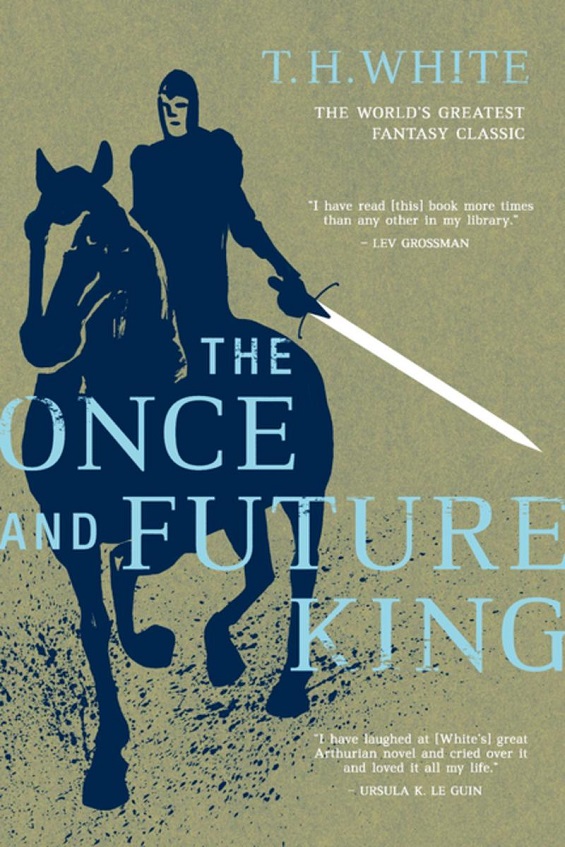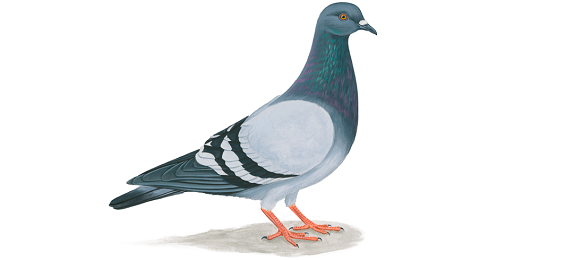Merlyn, Badger, Ants.

People seemed to enjoy the extended quote about pigeons taken from T. H. White’s The Once and Future King, so here are three other tidbits I marked in my copy with little sticky notelets.
The Once and Future King is actually four books in one volume, the first of which, The Sword in the Stone is the most famous and concerns young Arthur’s education by Merlyn.
“The best thing for being sad,” replied Merlyn, beginning to puff and blow, “is to learn something. That is the only thing that never fails. You may grow old and trembling in your anatomies, you may lie awake at night listening to the disorder of your veins, you may miss your only love, you may see the world about you devastated by evil lunatics, or know your honor trampled in the sewers of baser minds. There is only one thing for it then — to learn. Learn why the world wags and what wags it. That is the only thing that the mind can never exhaust, never alienate, never be tortured by, never fear or distrust, and never dream of regretting. Learning is the thing for you.”
Arthur’s education often takes the form (as with the pigeon) of animal metaphor and fable. This, I think, is down to T. H. White and his introvert’s love of natural history. Usually, the fables are experienced up close ad personal with the animals when Arthur is routinely transformed by magic into one of their number and sent to visit their societies.
“So Merlyn sent you to me,” said the badger, “to finish your education. Well, I can teach you only two things — to dig and love your home. These are the true end of philosophy.”
The badger is right. The point of philosophy is to live well and a love for your “home” (one’s house, but also society and one’s own mind) is both the result of living well and the means. Digging, to me, refers to a life spent investigating, experimenting, quiet husbandry, maintenance, learning, and not infringing.
My favourite chapter so far (or at least the chapter I’ve found most remarkable) is one in which Merlyn transforms the boy into an ant and sends him into an ant nest. It’s a strange chapter and stands apart from the rest of the book. It feels just like an H.G. Wells or Jules Verne story in both tone and the depth of imagination.
The ants have a work-orientated society and White does not find this admirable. The ants see everything through the lens of productivity, describing everything as either “done” or “not done,” the former being inherently good and the latter inherently bad. A delicious morsel is considered “done” and the same morsel, if found to be contaminated with poison, is “not done.” They see everything in these binary terms, their lives an unending sense of getting things “done”.
There’s a nice satire of the “what do you do?” question versus the Escapologist:
“What are you doing?” The boy answered truthfully: “I am not doing anything.” [The ant] was baffled by this for several seconds, as you would be if Einstein had told you his latest ideas about space. Then it extended the twelve joints of its aerial and spoke past him into the blue. It said: “105978/UDC reporting from square five. There is an insane ant on square five. Over to you.”
Pigeon

I’ve always had a soft spot for pigeons. There were present in my childhood, circling the skies, as various local people kept racing pigeons. Our family even had three “adopted” pigeons — Walter, Snowdrop and Zoomer — who would report to our garden on-schedule every evening for feed. Walter even took to a bird house my dad installed outside my bedroom window.
It turns out that the pigeon may even be the bird of Escapologists. I came across this lovely passage today in The Once and Future King, written by T. H. White who knew his birds:
“The pigeon”, said Archimedes, “is a kind of Quaker. She dresses in grey. A dutiful child, a constant lover, a wise parent, she knows, like all philosophers that the hand of man is against her. She has learned throughout the centuries to specialize in escape. No pigeon has ever committed an act of aggression nor turned upon her persecutors: but no bird, likewise, is so skillful in eluding them. She has learned to drop out of a tree on the opposite side to man, and fly low so that there is a hedge between them. No other bird can estimate a range so well. Vigilant, powdery, odorous and loose-feathered — so that dogs object to take them in their mouths — armoured against pellets by the padding of these feathers, the pigeons coo to one another with true love, nourish their cunningly hidden children with true solicitude, and flee from the aggressor with true philosophy — a race of peace lovers continually caravanning away […] They are loving individualists surviving against the forces of massacre only by wisdom in escape.”
You’re Doing It Wrong
“Choose a job you love, and you’ll never work a day in your life!”. Or so we’re told. Usually by some kind of nauseating lifestyle blog or motivational poster.
These days it’s not enough just to turn up, work hard and bring home a wage; we should all be following our passions, chasing that dream job, and waking up every morning raring to get to the office. If your job is tedious, you hate your boss, and Monday mornings make you want to cry, it’s probably YOUR FAULT for not being ambitious enough.
This radio show and podcast (the podcast is five minutes longer) by Emily Knight and Adam Buxton is rather good. The first episode is about attitudes to work and the potential alternatives to the nine-to-five.
There’s an especially good chat with Ross, a poet and entertainer who talks about his “fake front as an office worker” while writing poetry into a spreadsheet and gradually transitioning into subsisting on his art.
There’s also Sophie, who discusses how she quit her stressful, job-based London life in favour of creative work and more time with friends and family in Margate.
The show reminds me of Richard Herring’s Bad Habits but with more Doctor Buckles.
Is the idea of a ‘dream job’ – one that inspires and fulfills us and makes our lives worth living – really possible? Or idealistic nonsense designed to make you feel guiltier, work harder, and complain less? Can we really be happy at work and should we be?



